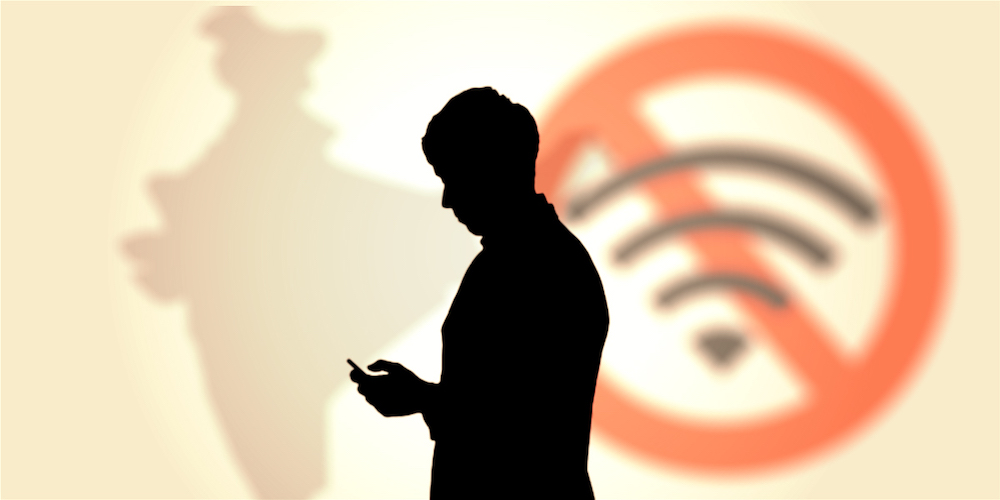8 out of 10 Africans have felt internet and social media shutdowns in the last 7 years, study

Globally, the study however notes that internet restriction cases decreased by 14% in the first half of this year – from 84 in 2021’H2 to 72. Internet disruptions and restrictions were recorded in 10 countries, 85% being from India and the Jammu and Kashmir region, making Asia the leading continent in internet shutdowns.
The continent also leads in terms of social media disruptions over the period of seven years. Out of 72 internet disruption cases in 2022, social media platforms were targeted six times: twice in Europe and Africa, and once in Asia and South America. Despite a decrease in cases, new internet disruptions affected more citizens in 2022’H1 – 1.89B people compared to 1.54B in 2021’H2.
“We see a positive trend of internet restriction cases going down this half of the year. Nevertheless, the number of countries that use internet disruptions as a weapon to silence citizens’ unrest remains worryingly high. Most cases are of national or local magnitude where the internet is slowed or completely shut down, leaving its people without most of their communication means,“ says Agneska Sablovskaja, Lead Researcher at Surfshark.
In the first half of 2022, Surfshark says it registered 66 internet blackouts in six countries and territories: Burkina Faso, India, Jammu and Kashmir, Kazakhstan, Pakistan, and Sudan. Internet was shut down locally in three countries and territories (India, the Jammu and Kashmir region, and Pakistan). In comparison, three countries (Burkina Faso, Kazakhstan, and Sudan) chose to cut down internet connections nationwide, even though it cripples the economy the most.
85% of internet shutdown cases (61) happened in India and the Jammu and Kashmir region, twice in Burkina Faso, and once in the rest of the affected countries. Therefore, Asia has been considered the most censored continent worldwide for the past six months.
“The slight decrease in observed nation-scale internet shutdowns in early 2022 follows a period of unprecedented reliance on the internet during the pandemic. Yet this is no reprieve — around the world the overall decline in freedoms continues, which is why it is essential to monitor and support human rights and democracy in the digital sphere,” said Alp Toker, CEO of NetBlocks, the global internet watchdog organization.
The research shows that social media censorship cases this year spread through all continents. In the first half of 2022, Surfshark recorded six incidents in 5 countries: Brazil, Burkina Faso, Sri Lanka, and Zimbabwe have all shut down their social media once, and Russia twice, with one case still ongoing. The most common reasons for censorship were political turmoil and protests.
According to Surfshark’s study, 5.7B people in 76 countries have been deprived of internet access since 2015.
In the first half of 2022, the most commonly restricted social media app the study notes was Facebook. 46% of the global population has been affected by government-imposed Facebook restrictions over the past seven years. Twitter and WhatsApp follow the app, the latter being the most censored voice-over IP (VoIP) app. Governments also targeted Instagram, Telegram, and YouTube.
Currently, 16 of 196 analyzed countries and territories are restricting access to social media or voice-over IP (VOIP) services. Most of the ongoing restrictions (12) are registered in Asian countries.
The research tracks partial and complete internet and social media shutdowns in 196 countries and territories from 2015 to now. It was released just days after Kenya’s Cohesion and Integration Commission (NCIC) issued a seven-day ultimatum notice to Facebook to comply with hate speech prevention guidelines or face suspension in the country days before the general elections.
ICT CS Joe Mucheru however dismissed the threats saying NCIC has no legal framework to suspend Facebook or any other social media platform.
Follow us on Telegram, Twitter, Facebook, TechTrends Podcast or subscribe to our weekly newsletter to ensure you don’t miss out on any future updates. Send tips to info@techtrendske.co.ke



